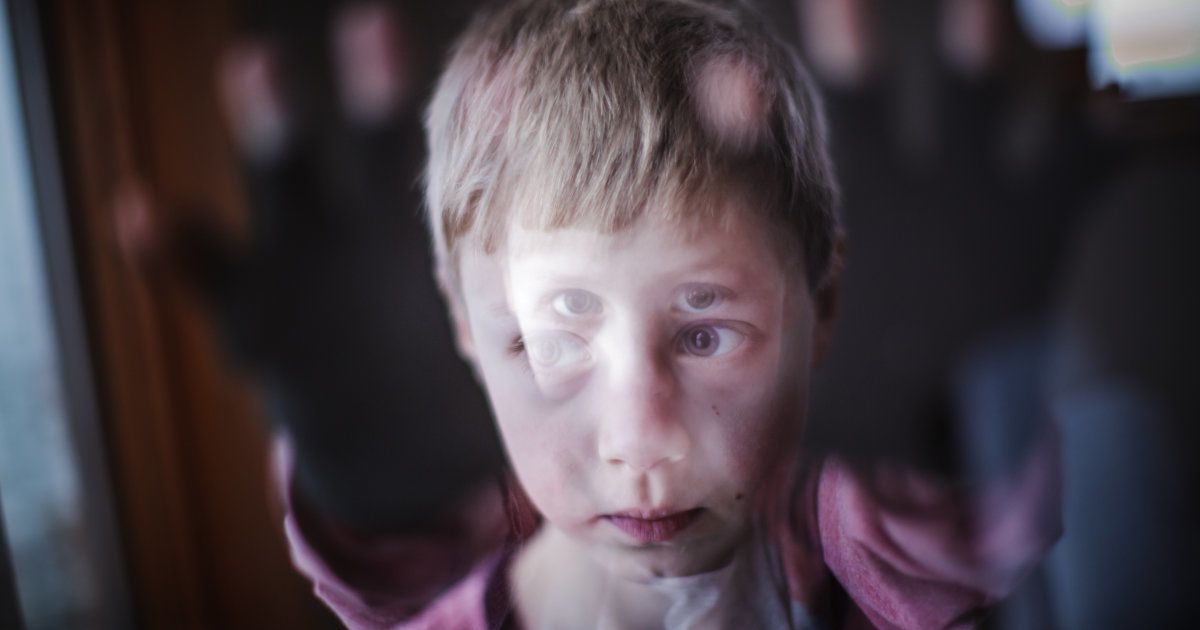Significant Warning Signs You May Have A Mental Disorder
Whether it is depression, anxiety, or something else, mental illness is not something to take lightly. Individuals who feel they might be struggling with some type of issue with their mental health should reach out for assistance and visit a doctor or mental health professional, such as a psychologist or psychiatrist, as soon as they can. Doing so can greatly assist in the identification of what is wrong, if anything, and can help with starting effective treatment sooner. Individuals may also want to consider speaking to a trusted friend or other loved one, particularly if they are nervous about seeking professional help, as they can be a great source of support.
Uncover the major symptoms that may indicate the presence of a mental disorder now.
Prolonged Sadness

Feeling down every now and again is normal. Everyone has bad days and there are always going to be some rough patches throughout life. Yet, if an individual has felt disengaged for an extended period with no true reason for feeling this way, they may have something more serious they should be treated for. If at any point individuals feel their feelings are overtaking their life and are more than they can handle, they should seek out help right away and take control.
Continue reading to reveal more serious indicators of a mental health disorder now.
Extreme Highs And Lows

IFrequent mood changes could be a serious sign an individual has a mental health condition. Someone's emotions are likely to change throughout the day, but if an individual finds themselves bringing these emotions to the extreme and doing so quite frequently, they may be dealing with a mental health disorder like bipolar disorder. With this condtion, patients may sometimes feel over-excited about things and lose sleep due to it, acting impulsively, and experiencing racing thoughts. Other times, getting out of bed may seem like an impossibility. There are medication and lifestyle tactics patients can implement to help cope with this disorder.
Learn more about symptoms linked to mental health disorders now.
Social Withdrawal

Social activity is important and keeps the mind stimulated and engaged on a regular basis. When individuals find themselves feeling down more regularly, it is often easy to withdraw from others and avoid going out at all possible costs. In doing this, individuals are enabling themselves to shut down and sink deeper into their feelings of depression and loneliness. Patients experiencing this, beyond seeking professional assistance, should often try to set small goals to lessen their isolation. These small goals include making a phone call or going on a short walk with a friend. Any little bit helps.
Get the details on how thoughts may indicate the presence of a mental health disorder now.
Illogical Thoughts

When individuals are feeling regulated and optimistic, it is easy to keep their thought processes in check. Everyone worries or feels suspicious from time to time, but if an individual begins to find themselves constantly fighting off thoughts they know are not logical, it might be time to seek some help. Some examples of illogical thoughts include thinking everyone does not like you, devaluing yourself, paranoia, and skipping steps in your thinking process, thus bringing about illogical conclusions.
Learn about when sleep may be considered a symptom of a mental health condition now.
Changes In Sleep Cycle

Just about any change in an individual's sleep pattern can greatly affect their mental health, which then turns around to affect their sleep cycle even more. A perfect example is not sleeping well for a few nights, thus causing stress to rise when a physical cause is nowhere to be found, thus causing more sleepless nights due to being stressed about sleeping. It is a vicious cycle that is, unfortunately, very easy to fall into. Not only are individuals more prone to sleep problems if they have a mental health disorder, but their symptoms will also likely get worse if they do not regulate their sleeping schedule quickly.
Uncover more indicators of a mental health condition now.
Confusion Or Reduced Concentration

Difficulty with concentration that occurs periodically is normal. Hormonal changes, emotional stress, and tiredness are all common causes of concentration issues. However, if individuals notice their concentration getting worse without any known cause, or they're experiencing persistent concentration problems that interfere with their day-to-day life, it may be a sign of a mental health disorder. The most commonly associated condition with this is attention-deficit hyperactivity disorder, caused by a deficiency in certain neurological chemicals, which causes the brain to have trouble focusing and making connections like a neurotypical person. Though ADHD doesn't develop spontaneously and is generally present in childhood, some adults may be diagnosed later in life because their symptoms weren't noticed or considered typical in childhood. General forgetfulness, exhaustion after concentrating for short periods, difficulty leaving a task and remembering what one was doing later, and a lack of observation are all hallmark symptoms of adult ADHD.
Understand when eating may reveal the presence of a mental health disorder now.
Major Shifts in Eating Habits

Individuals who experience major shifts in their eating habits without any known physical cause could have a mental disorder. One of the most common shifts is a loss of appetite associated with depression. Individuals with depression or other mood disorders may feel listless, lethargic, and like they either aren't hungry or don't have the energy to eat. In a similar vein, patients with anxiety disorders may be too anxious to eat. Depression can also present with sudden bingeing and comfort eating. An entire class of mental health disorders, eating disorders, is based around food-related neuroses. Anorexia nervosa patients tend to restrict their calorie intake, become obsessed with their weight, make up food-related rules for their lives, and experience extreme distress when forced to change those routines. With bulimia, patients go through periods of bingeing followed by purging through laxatives, vomiting, or other means. Binge eating disorder is an eating disorder in which affected individuals eat excessively and feel out of control, but don't purge afterward.
Keep reading for more details on symptoms of mental health disorders now.
Significant Lethargy And Tiredness

Significant lethargy and tiredness can be a sign of both physical and mental disorders. Lethargy is a feeling of sleepiness, fatigue, or sluggishness, which could be mental or physical. An individual with lethargy may have physically slower movements, difficulty following conversations, and may seem dazed. Other common signs of lethargy are mood changes, low energy, decreased reaction times, and a decreased ability to think. If an individual is sleeping enough, eating enough, and drinking enough water, the lethargy may have an underlying cause. One common physical cause is hypothyroidism, which occurs when the thyroid can't produce enough hormone to regulate the individual's metabolism. This condition leads to depression. Major depressive disorder can also cause lethargy. This condition is diagnosed when an individual feels listlessness, tiredness, apathy, or experiences feelings of sadness that last for more than two weeks without a known external cause. Postpartum depression, which occurs after a woman gives birth, can also cause lethargy. Premenstrual syndrome can lead to lethargy because of its hormonal changes.
Read more about mental disorder indicators now.
Delusions Or Hallucinations

Delusions and hallucinations are part of a wider category of symptoms called psychosis. Though the term 'psychosis' is somewhat stigmatized in popular media, psychotic symptoms are simply symptoms that cause a disconnect in an individual's perception of reality. Affected individuals may have bizarre or unusual thought patterns, perceive sights and sounds that aren't there, or experience and express emotions oddly. Psychosis can be caused by certain physical brain conditions, but it's also commonly a sign of a mental health disorder. Studies indicate 3.5 percent of patients experience some form of psychosis. It's extremely important to note these individuals do not tend to be predisposed to violence, and they are more likely to be victims of violent crime than perpetrators. The most well-known psychotic disorder is schizophrenia, which causes individuals to have trouble distinguishing between reality and delusions or hallucinations. Other related conditions include schizophreniform disorder, schizoaffective disorder, delusional disorder, schizotypal disorder, and brief psychotic disorder. Brief psychotic disorder, which is often triggered by stressful life events, involves psychotic symptoms that last at least twenty-four hours but not longer than a month.
Keep reading to learn more about warning signs of mental health disorders now.
Physical Ailments Without Obvious Cause

Sometimes physical ailments without obvious cause can be a sign of a mental health disorder. With that said, it's important for doctors to treat physical ailments seriously, as many physical conditions are difficult to test for and have unknown causes. For example, fibromyalgia causes full-body pain and fatigue. For an unknown physical problem to be caused by a mental health disorder, patients usually have to experience other mental health symptoms alongside it. Common problems are stomach aches, headaches, joint pain, and muscle aches. Headaches can be brought on by stress, while stomach aches may be caused by anxiety. Anxiety can also have other physical symptoms like sweating, rapid heart rate, and dizziness.